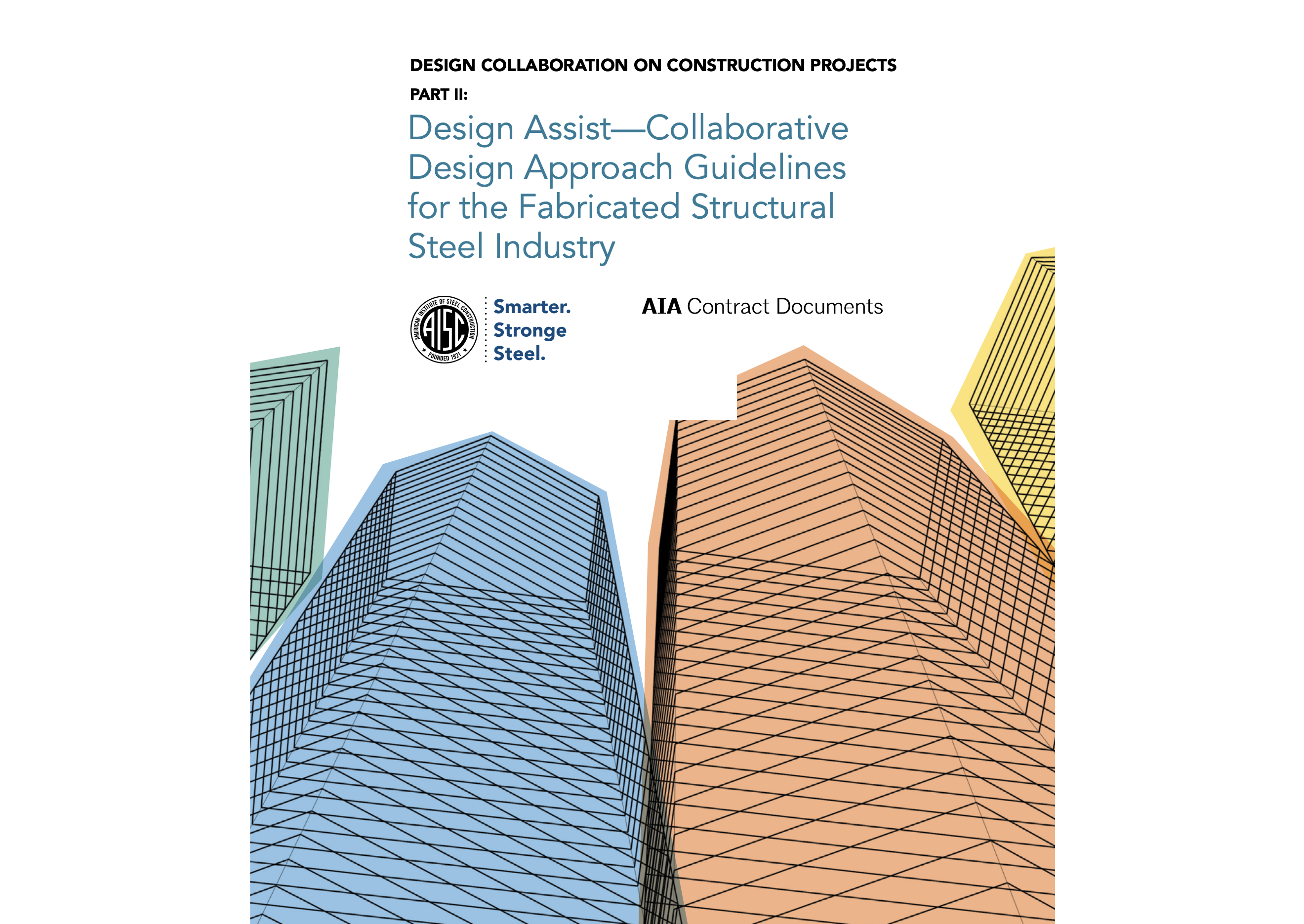The American Institute of Steel Construction and AIA Contract Documents have released the second part of a document intended to provide guidance for three common collaboration strategies.
The document, Design Assist: Collaborative Design Approach Guidelines for the Fabricated Structural Steel Industry, is a follow-up to part one, Delegated Design, Design Assist, and Informal Involvement: What does it all mean?
The strategies covered are informal involvement, design assist, and delegated design. Part II focuses on the implementation of design assist in the fabricated structural steel industry. The document describes the roles and responsibilities of various project participants and provides general guidelines about applying those strategies to fabricated structural steel projects.
“Great teams drive great projects—and great teams rely on clear communication,” said Babette Freund, vice president of special projects, Dave Steel Company, Inc., and chair of AISC’s Code of Standard Practice Committee. “This paper aims to help project teams use design assist strategies to meet a defined project schedule and budget while minimizing the costs and disruptions that might arise from team misalignments.”
How AISC defines design assist for the structural steel industry
According to the guidelines, design assist is, "A form of collaboration where a structural steel fabricator and/or erector (or a fabricator/erector team under one contract, depending on project circumstances) provides information under a contract with the owner or other party as designated by the owner, to assist a structural engineer of record (SER) and other designated members of the design assist team with the design of the structural steel for buildings or building-like structures."
Related Stories
| Apr 13, 2012
New York City’s building department investigating structural collapse that killed worker
Following a worker’s death, the collapse of a century-old, two-story warehouse under demolition as part of Columbia University’s expansion is under investigation by the city’s Building Department.
| Apr 13, 2012
Federal court reduces statute of limitations for OSHA action on record-keeping violations
The U.S. Court of Appeals for the D.C. Circuit sharply curtailed the period of time that companies can be cited for Occupational Safety and Health reporting violations, reversing the decision of an administrative panel and longstanding agency precedent.
| Apr 13, 2012
CSI webinar: Green Construction Codes Are Here -- Now What?
This seminar will trace the origins of green codes, how they compare and differ from the rating systems that have been used, and examine some of their main features.
| Apr 5, 2012
Retailers, banks among most affected by new ADA rules
On March 15, the most significant changes to the Americans with Disabilities Act (ADA) since it became law in 1991 went into effect.
| Apr 5, 2012
Florida ranks first in hurricane building codes and enforcement
Florida ranks highest among 18 hurricane-region states for building codes and their enforcement, according to the Insurance Institute for Business & Home Safety.
| Apr 5, 2012
New IgCC green building code is a ‘game changer,’ AIA official says
An AIA official calls the new International Green Construction Code (IgCC) a “game changer” for sustainable construction.
| Apr 5, 2012
Model energy codes add thousands to cost of new apartment construction, study says
New energy codes could add thousands of dollars to the construction costs of each individual apartment residence in a multifamily building, according to new research commissioned by the National Multi-Housing Council and the National Apartment Association.
| Apr 5, 2012
LEED 2012 will include new requirements for data centers
The U.S. Green Building Council’s updated LEED 2012 standards will require two systems to be modeled for each project in order to show power utilization effectiveness.















